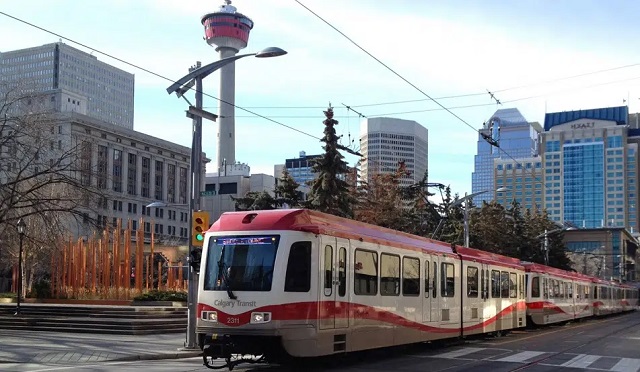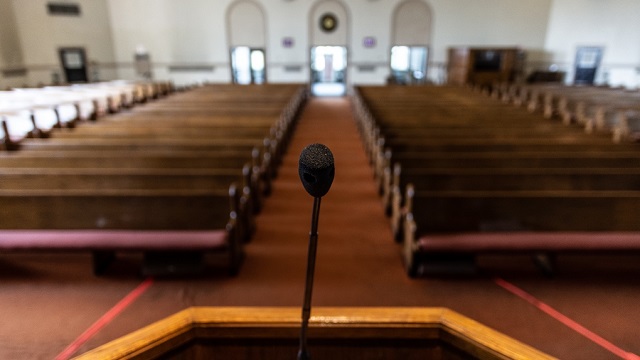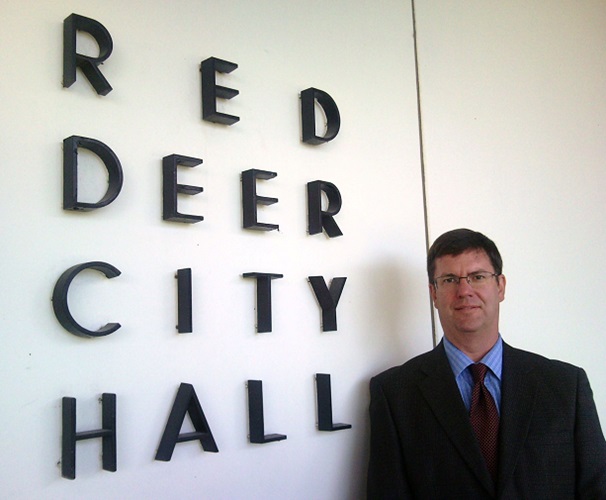Alberta
CP Holiday Train family event in Blackfalds this Sunday!

CP Holiday Train set for stop in Blackfalds
The CP Holiday Train, which raises food and funds for local food banks across Canada, is back for its 20th year. This year, it will arrive in Blackfalds on Sunday December 9 at 12:45 pm for a free concert with Terri Clark, Sierra Noble and Kelly Prescott. The train will stop at Gregg St between Broadway and East Avenues and will perform just beside Tayles Water Spray Park. We encourage people to arrive early.
Who: Terri Clark, Sierra Noble and Kelly Prescott will perform
What: CP Holiday Train arrives in Blackfalds
Where: Gregg St between Broadway and East Avenues
When: Sunday, December 9, 2018 at 12:45 pm
Why: At each stop, CP hosts a free event with music, entertainment, lights etc. They simply ask attendees to donate money or food to their community food banks.
Gregg St from Broadway Ave to East Ave will be closed from 11:00 am to 3:00 pm. The Railway crossing on Broadway Ave will be closed from approx. 12:30 pm to 1:30 pm.
The CP Holiday Train encourages donations of non-perishable food items & cash for the Blackfalds Food Bank. Donations to the Blackfalds Food Bank will be accepted at the drop-off locations at Tayles Park.
Please plan to arrive early & walk if possible, as nearby parking will be limited.
Follow the Train on social media and post your experience Instagram @cpholidaytrain, #cpholidaytrain @blackfalds
For further details visit the Town website at blackfalds.com.
 Terri Clark
Terri Clark
?Hailing from Medicine Hat, Alberta, Canada, Terri Clark got her start by playing for tips at Tootsie’s Orchid Lounge, a legendary honky-tonk bar across the alley from Nashville’s historic Ryman Auditorium. The 3-time JUNO Award winner holds the honor of being the only Canadian female member of the legendary Grand Ole Opry. Terri has received 19 CCMA Awards and is the newest member of the Canadian Country Music Hall of Fame.
“I had such a wonderful time on the US leg of the CP Holiday Train last year, and I’m so excited for this experience again, across my home country of Canada. Seeing the smiling faces, holiday spirit, and people giving back to their own communities is an amazing thing to be a part of and witness.”
 Sierra Noble
Sierra Noble
?Winnipeg singer-songwriter Sierra Noble has been a part of the Canadian music scene since a very young age, beginning her touring career when she was only 14 years old as a solo Old-time fiddle player. Her evolution as an artist brought her to a journey of singing and songwriting debuted by a song called “Possibility” which went on to be featured on television shows such as “One Tree Hill” and “Switched at Birth”. She credits that song to be what opened the door to her opening for international legends Bon Jovi and Paul McCartney.
“I am beyond excited to be a part of the 20th anniversary CP Holiday Train! Come join us with your friends, family, and food bank donations while we warm our hearts together through song in the cold chill of winter!”
 Kelly Prescott
Kelly Prescott
?Celebrating a long lineage of a very musically inclined family, the third-generation singer grew up in an award-winning studio where she was able to hone her craft of song writing. Penning such fan favourites as ‘Carryin’ Coal’ and ‘Coming Home To You (ft. Buddy Miller)’, her new music expands on her talent and unique vocals to reveal tracks like ‘Who Gets The Church’ and ‘Leavin’ Her’, which was released worldwide June 8th.
“I’ve had the honour of being a part of the CP Holiday Train for many years, yet this never gets old. In fact, it becomes more magical every year. To see firsthand the difference this program makes in each community is nothing short of incredible.”
Alberta
Building a 21st century transit system for Calgary

From the Frontier Centre for Public Policy
Calgary Transit is mired in the past, building an obsolete transit system designed for an archaic view of a city. Before the pandemic, transit carried 45 percent of downtown Calgary employees to work, but less than 10 percent of workers in the rest of the Calgary urban area, showing that Calgary Transit doesn’t really serve all of Calgary; it mainly serves downtown.
That would have worked in 1909, when Calgary’s first electric streetcars began operating and most jobs were downtown. By 2016, less than 15 percent of Calgary jobs were downtown, and the pandemic has reduced that number further.
Rather than design a transit system that serves the entire urban area, Calgary Transit light-rail system reinforced its downtown focus. Transit ridership has grown since the city’s first light-rail line opened in 1981, but it was growing faster before the light rail began operating than it has since then. Now Calgary Transit is planning even more downtown-oriented light-rail lines.
Light rail is an expensive form of low-capacity transit. The word “light” in light rail refers not to weight but to capacity: the American Public Transportation Association’s transit glossary defines light rail as “an electric railway with a ‘light volume’ traffic capacity.” While a light-rail train can hold a lot of people, for safety reasons a single light-rail line can move no more than about 20 trains per hour in each direction.
By comparison, Portland, Oregon runs 160 buses per hour down certain city streets. An Istanbul busway moves more than 250 buses per hour. Bogota Columbia busways move 350 buses per hour. All these transitways cost far less per mile than light rail yet can move more people per hour.
Once they leave a busway, buses can go on any city street, reaching far more destinations than rail. If a bus breaks down or a street is closed for some reason, other buses can find detours while a single light-rail breakdown can jam up an entire rail line. If transportation patterns change because of a pandemic, the opening of a new economic center, or the decline of an existing center, bus routes can change overnight while rail routes take years and cost hundreds of millions of dollars to change.
To truly serve the entire region, Calgary Transit must recognize that buses are faster, more flexible, and can move more people per hour to more destinations at a lower cost than any rail system. It should also recognize that modern urban areas have many economic centers and use buses to serve all those centers.
Besides downtown, Calgary’s major economic centers—the airport, the University of Calgary, Chinook Center, the Seton health center, and others—are mostly located near freeway on- and off-ramps. Calgary Transit should identify ten or so such centers geographically distributed around the region. It should locate transit centers—which need be no more than curbside parking reserved for buses with some modest bus shelters—near the freeway exchanges closest to each center.
It should then operate frequent (up to five times per hour) non-stop buses from every center to every other center. A few secondary transit centers might have non-stop buses operate to just two or three other centers. Local bus routes should radiate away from each center to serve every neighborhood of the Calgary urban area.
Since non-stop buses will operate at freeway speeds, the average speed of this bus system will be more than double the average speed of Calgary’s current bus-and-rail system. Transit riders will be able to get from any corner of the urban area to any other part of the urban area at speeds competitive with driving.
Such a polycentric system will serve a much higher percentage of the region’s workers and other travelers than the current monocentric system yet cost no more to operate. It will cost far less to build than a single rail line since most of the necessary infrastructure already exists. While some may worry that buses will get caught in congestion, the solution is to fix congestion for everyone, not spend billions on a slow rail system that only serves a few people in the region.
It is time for Calgary Transit to enter the 21st century. A polycentric bus system may be the best way to do it.
Randal O’Toole is a transportation policy analyst and author of Building 21st Century Transit Systems for Canadian Cities.
Alberta
Alberta backs Saskatchewan in court battle defending parental consent for ‘pronoun changes’

From LifeSiteNews
‘Saskatchewan and Alberta agree that the key figures in children’s lives are their parents, and our provinces are both committed to supporting families and children so that they can work through unique needs together,’ the provinces wrote in a joint letter in defense of parental rights.
Alberta has announced its support of Saskatchewan’s policy requiring parental consent for children to go by different pronouns at school amid a lawsuit against the policy by an LGBT activist group.
On April 9, Alberta Minister of Justice and Attorney General Mickey Amery and Saskatchewan Minister of Justice and Attorney General Bronwyn Eyre revealed that Alberta will intervene in Saskatchewan’s Parents’ Bill of Rights case challenging their new pro-family laws.
“Saskatchewan and Alberta agree that the key figures in children’s lives are their parents, and our provinces are both committed to supporting families and children so that they can work through unique needs together,” the joint statement read.
“Notifying parents and requiring their consent before a child’s name or pronouns can be changed in schools, and before classroom discussions about gender identity and other sensitive subjects occur, ensures that the parent-child relationship is respected and paramount,” it continued.
The pronoun policy is just one part of Saskatchewan’s new “Parental Inclusion and Consent Policies,” which also include provisions that ensure parents are allowed to opt their kids out of sex-ed, and that third-party presentations from groups such as Planned Parenthood will be prohibited from taking place.
After the policies were put forth, LGBT activist group UR Pride Centre for Sexuality and Gender Diversity at the University of Regina, represented by Egale Canada, filed a lawsuit to reverse the pro-family laws.
While a judge has ruled in favor of the LGBT group, Saskatchewan Premier Scott Moe announced in response that he will invoke his government’s notwithstanding clause to protect the legislation from the courts.
The notwithstanding clause, embedded in section 33 of the Canadian Charter of Rights and Freedoms, allows provinces to temporarily override sections of the Charter to protect new laws from being scrapped while higher courts make a determination on the constitutionality of the law.
The case is set to be heard in the Saskatchewan Court of Appeal. During the case, Saskatchewan will now be supported by Alberta, which has committed to intervene in the appeal.
“Alberta will seek to advance legal arguments that Saskatchewan’s use of section 33 of the Charter (the Parliamentary Supremacy Clause) should have prevented Saskatchewan’s Court of King’s Bench from reviewing the constitutionality of the Education (Parent’s Bill of Rights) Amendment Act, 2023 legislation,” the province promised.
“This case has the potential to impact not only parental rights across Canada, but also the application of the Parliamentary Supremacy Clause, which has been an integral piece of the Canadian Charter of Rights and Freedoms and the Constitution of Canada since 1982,” it declared.
Similar to Saskatchewan, Alberta recently introduced its much-anticipated pro-family legislation protecting children and parental rights from the worst results of transgender ideology, including banning doctors from medically ‘transitioning’ children, requiring parental consent for pronoun changes in school, and barring men claiming to be women from women’s sports.
Recent surveys have shown that Moe is acting in the interest of Saskatchewan parents by introducing legislation protecting school children from LGBT propaganda.
According to an August 2023 survey, 86 percent of Saskatchewan participants advocated for parental rights, supporting the province’s new approach to the LGBT agenda in schools.
Furthermore, over 40,000 Canadians have pledged their support for Saskatchewan’s fight for parental rights in the classroom, also calling on all other provinces to follow suit.
Additionally, a Saskatchewan teacher wishing to remain anonymous previously told LifeSiteNews that she feels guilty about keeping secrets from parents and supports the decision to keep parents informed.
“I fear that we are not supporting students or parents when we keep secrets,” she explained. “We have many students using alternate names, which sometimes changes frequently during the year, and then are asked by parents if we were aware of the changes after the fact. I feel responsible for keeping the secret and I don’t think it’s fair. I think schools are already taking on too many ‘parent roles’ and it’s important that parents play the ‘parent role’ not teachers!”
-

 Housing2 days ago
Housing2 days agoTrudeau admits immigration too much for Canada to ‘absorb’ but keeps target at record high
-

 Censorship Industrial Complex2 days ago
Censorship Industrial Complex2 days agoTrudeau’s new online censorship law – Problems with Bill C-63 / the Online Arms Law
-

 conflict2 days ago
conflict2 days agoWestern leadership’s detachment from reality is causing terror and death across the globe
-

 Business1 day ago
Business1 day agoDecarbonization deal opens new chapter in Alberta-Japan relationship
-

 Energy2 days ago
Energy2 days agoNew documentary exposing climate alarmism is the latest victim of Big Tech censorship
-

 Censorship Industrial Complex2 days ago
Censorship Industrial Complex2 days agoNPR senior editor admits extreme bias in Russia collusion, Hunter Biden laptop, COVID coverage
-

 Censorship Industrial Complex2 days ago
Censorship Industrial Complex2 days ago“Minority Report”: The Sequel. A warning to the Canadian Church
-

 2024 City Councilor By-Election2 days ago
2024 City Councilor By-Election2 days agoGet to know your candidates for city council: Calvin Yzerman






